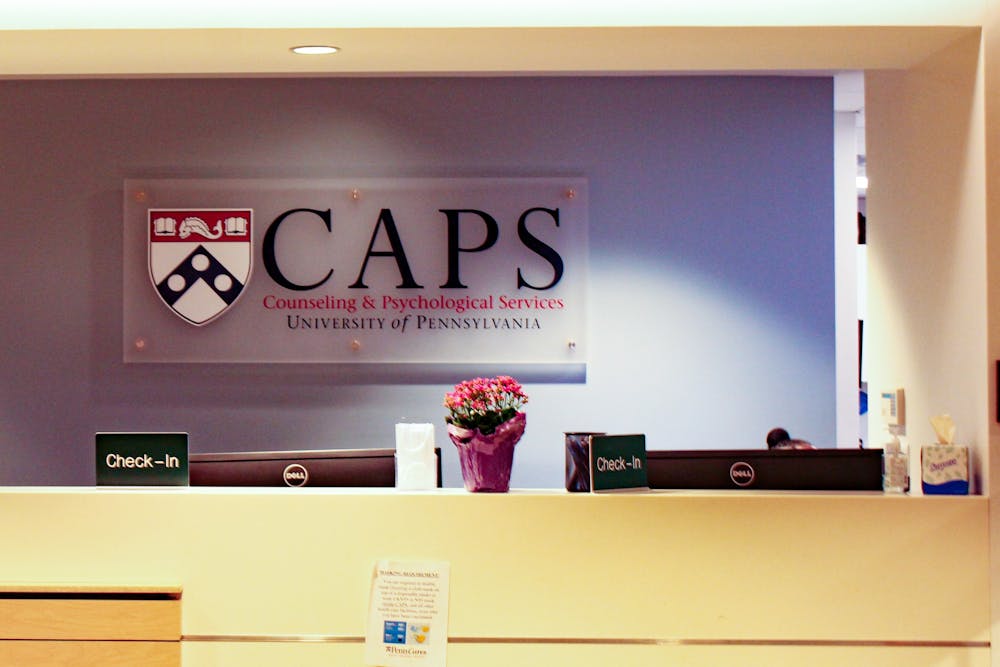
It was only through conversation that I learned that Counseling and Psychological Services (CAPS) as an independent entity no longer exists; it has recently merged with Student Health Services and been renamed Student Health and Counseling. Student Health and Counseling now describes itself as the “primary care and psychological care division of Wellness at Penn,” encapsulating both physical and mental wellness.
In 2021, The Daily Pennsylvanian’s Editorial Board wrote a column describing CAPS’ issues, such as its lack of a central location and its general lack of resources at its disposal. Its current location is on Market Street, which is certainly not ideal, as this distance is likely a barrier for students who want to seek convenient care. Although it’s only roughly a ten-minute walk from the center of campus, it is noticeably disconnected from campus and more difficult to find, especially if one is seeking care alone. Furthermore, Penn’s large endowment, which stands at $20.7 billion, seemingly is always used to support other ventures, such as the construction of Gutmann College House.
Throughout the past few years, there has been a continued sentiment shared by many students that CAPS has not provided sufficient counseling services. Partly in response to this sentiment, CAPS founded a panel of student advisors to provide feedback on various initiatives — including hiring more clinicians of color. But arguably this panel never reached students to the degree it was intended to — I only learned about it via conversations with someone who served on the panel last semester.
This panel was called the CAPSAB, the CAPS Student Advisory Board. It was composed of students who would relay student voices to the CAPS administration on how to improve CAPS’ services, and in turn, would promote CAPS’ resources and services to the student body through social media and around campus. The CAPSAB website page is no longer available because of the recent merge with Student Health Services.
There is a blatant disconnect between the administration, Student Health and Counseling, and the student body. There has been no direct email communication with the student body about these important changes surrounding Wellness at Penn — notably absent from Benoit Dubé’s communication, the University’s Chief Wellness Officer.
I am one of many Penn students who were unaware of this merger with SHS, which is a significant move that the Penn administration should have reported to the student body in a succinct email. Because the new “Student Health and Counseling” falls underneath the larger Penn Wellness Umbrella, this information could have easily been sent to us by Benoit Dubé. But instead, his recent communications have centered around urging students to provide information for the National College Health Assessment.
This lack of communication is representative of the precarious relationship between CAPS and the rest of Penn. It is no secret that mental health is an ongoing issue at Penn, where students often feel immense stress and internal and external pressure.
In fact, a 2015 CIS Senior Design Project from Penn Engineering conducted a project analyzing the top 25 universities’ social media data, and Penn was found to have the highest depression ranking. Furthermore, between 2013-2018, 14 Penn students tragically passed away by suicide, shortly followed by the suicide of the director of CAPS in 2019. The passing of student Ao “Olivia” Kong was especially poignant for the Penn community because, in the months leading up to her suicide, she sought help from a counselor at CAPS who provided little to no support. This case further exemplifies the systemic issues with Penn’s mental health services, which will likely be exacerbated by this recent merger that students were not adequately informed about.
With a student body so obviously in need of mental health support and resources, Penn should place its mental health services at the forefront of its priorities and communication. The lack of communication will directly affect students negatively, as students might still seek out mental health services under the impression that these services are still referred to as “CAPS.” How can students easily access these resources without even knowing their name? We deserve to know when major changes are made to a resource that is so vital for our success at Penn and beyond.
ALLISON SANTA-CRUZ is a College sophomore studying communications from Jackson, Miss. Her email address is allisant@sas.upenn.edu.
The Daily Pennsylvanian is an independent, student-run newspaper. Please consider making a donation to support the coverage that shapes the University. Your generosity ensures a future of strong journalism at Penn.
Donate







